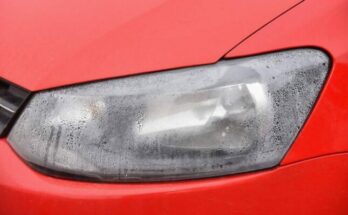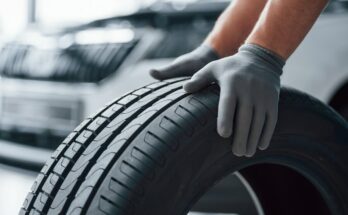How you drive and how you take care of your vehicle can have a great effect on how much fuel you use. Cars usually run at their best and consume less fuel when they are well maintained. However, fuel consumption becomes a concern when you realize that your car is consuming more fuel than it is supposed to.
There are many factors that affect a vehicle’s fuel economy. If you have noticed that your car is consuming more fuel than it used to, it can be due to the following reasons:
Faulty Engine/ Components
If an engine is not tuned properly or the maintenance service delayed, it will lead to a decline in the engine’s fuel efficiency. Simple maintenance such as regular oil changes, air-filter changes, and spark plug replacements will lengthen the life of your vehicle as well as improve fuel economy. Failure to replace worn out spark plugs, air cleaner elements or fuel filters as well as improper maintenance of the throttle valve and oxygen sensors will lead to an increase in fuel consumption.
Related: 5 Benefits of Clean Air Filter
Poor Engine Oil
The quality of engine oil you choose to use in your engine can also affect fuel economy. If you use substandard engine oil, at certain temperatures, the engine pistons and other moving parts move less freely. This adds a load onto the engine and hence a greater demand for fuel energy.
Related: Beginner’s Guide: Importance Of Engine Oil & Their Regular Change
Incorrect Tire Pressure/ Wider Tires
Keeping your tires properly inflated and aligned saves fuel by reducing the amount of drag your engine overcomes. Tires low on pressure requires more energy from the engine to move around efficiently. Always inflate your tires to the pressure recommended by the manufacturer, this can be found on the placard pasted on the driver side door frame of your car.
Related: Importance Of Correct Tire Pressure
Also, installing tires wider than the manufacturer recommended sizes can have a negative affect on fuel economy.
Frequent Start/ Stops and Short Distance Traveling
Vehicles generally are least fuel efficient at the start of trips and on short trips. One reason for this is that catalytic converters (which reduce air pollution emissions) do not operate properly until they have warmed up. Trips of less than 5 km usually do not allow the engine to reach its peak operating temperature, so plan your trips accordingly. It should also be noted that keeping your car idle just to warm-up the engine doesn’t help your fuel economy as this way it actually consumes more fuel.
Driving in Wrong Gears
This mostly applies to manual cars because automatic transmissions shift up more quickly and smoothly if you ease back slightly on the accelerator once the car gathers momentum. Certain speeds are supposed to be driven in certain gears. If you are driving at 70 km/h in third gear, then you will need more energy from the engine to move the vehicle compared to driving at same speed in fourth gear, hence consuming more fuel.
Related: Beginner’s Guide: Why Coolant Should Be Used Instead Of Plain Water
Driving in a gear lower than you need wastes fuel, and letting the engine labor in higher gears on hills and corners is also wasteful. In a manual vehicle, it’s always a good idea to change up gears as soon as the car is comfortable with the higher gear but without accelerating harder than necessary.
Bad/ Worn-out Clutch Plate
A worn-out or continuously slipping clutch plate can substantially affect the mileage. Slipping means insufficient contact between a clutch and pressure plate. Slipping of the clutch converts some of the engine power to be lost as friction. Since power is not fully converted hence the vehicle uses more energy to move which amounts to using more fuel.
Air Conditioning
Driving with the AC on generally adds extra load to the engine hence it consumes more fuel when operating. However, if driving at speed of over 80 km/h, use of air-conditioning is better for fuel consumption compared to an open window as the latter creates aerodynamic drag which is bad for fuel economy.
Related: Getting Your Vehicle Ready For Summer
Bad Driving style
Your driving style also affects the fuel consumption. If you drive aggressively and do not timely shift gears to the lightest one, this will keep your engine revolutions high thus consuming a lot of fuel. Always try to drive at a good distance from the car in front so you, so you can anticipate and move with the flow of traffic. This helps avoid unnecessary acceleration and repetitive braking that ends up wasting fuel.
Related: What To Do If Your Car Overheats
If you see traffic stoppages ahead, first take your foot off the accelerator and let the engine’s drop in power slow the vehicle. Don’t continue driving at the same speed and applying the brakes at the last minute, as getting back to cruising speed while the car is still moving uses far less fuel than stopping and then starting again.
Over Speeding
Vehicles are designed to be driven up to a certain speed, depending on their engine and power output. Over speeding and higher RPMs will always lead to higher fuel consumption. The higher the speed especially if it’s above 120 km/h, the more fuel you will consume.
Excessive Weight
Don’t carry around items you don’t need. For approximately every 50 kg of weight in your vehicle, fuel economy decreases by 1.5 to 2%. The decrease is based on the percentage of extra weight relative to the vehicle’s weight and affects smaller vehicles more than larger ones. Overloading increases fuel consumption because the load puts an energy toll on the engine.

A computer animation professional with over 23 years of industry experience having served in leading organizations, TV channels & production facilities in Pakistan. An avid car enthusiast and petrolhead with an affection to deliver quality content to help shape opinions. Formerly written for PakWheels as well as major publications including Dawn. Founder of CarSpiritPK.com




